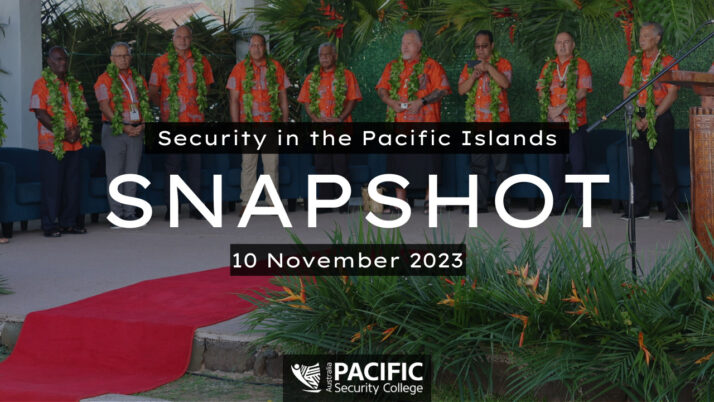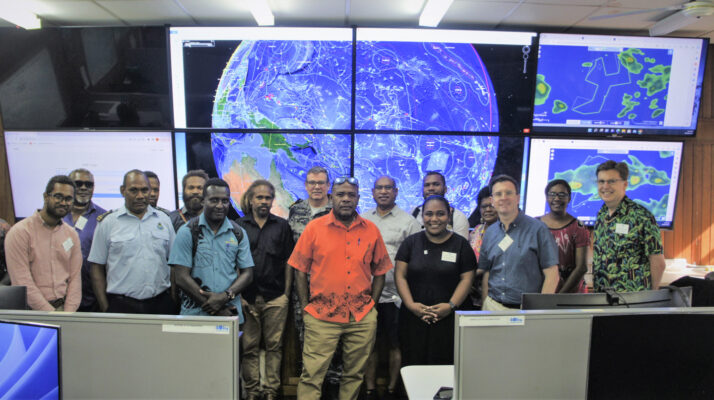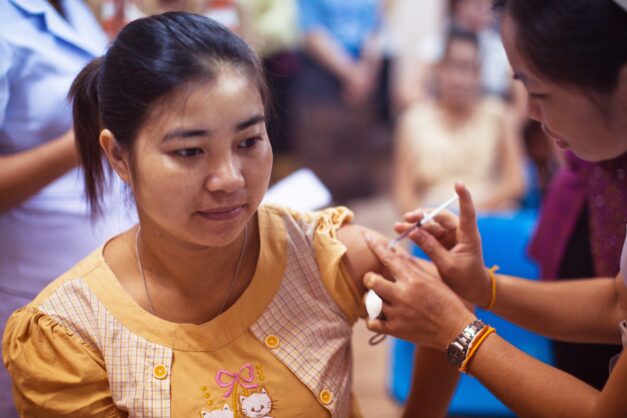Securing vaccine access in the Pacific
Henry Ivarature, Nick Thomson, Hugh McClure
Pacific states need to start planning for vaccine rollout in order to start rebuilding their communities, Henry Ivarature, Nicholas Thomson and Hugh McClure write.
Pacific states need to work on national COVID-19 vaccination plans. With vaccines potentially available in early 2021, governments should be making plans to secure their supplies and deliver these to their people. Across the Pacific, some planning is underway, but more work remains to be done to ensure national and regional vaccination plans in the Pacific Islands are ready to deploy.
This is especially true in Papua New Guinea (PNG). Home to eight million people and hampered by poor health services and a steadily rising number of COVID-19 cases, securing and deploying an approved vaccine will be vital. The virus has spread to 14 provinces, but is expected to reach all provinces with the opening of internal travel. Despite the importance of a vaccination plan, the ministerial statement on COVID-19 delivered in the August session of parliament does not include one. The country’s $1 billion Kina COVID-19 response plan also doesn’t budget for a vaccine.
However, Australia has made a down payment of AUD $80 million to support COVID-19 vaccine access in the Pacific. This was done through the Gavi COVAX Facility Advance Market Commitment fund, established to support equitable and affordable vaccines for lower and middle-income countries. Many countries in the Pacific, including PNG, are eligible for support under this plan.
Eligibility requires countries to have a designed and accredited vaccine plan as soon as possible. In designing a COVID-19 vaccine plan there is general recognition that vaccine delivery will need to be phased given supply limitations. It will also need to target health workers, other front-line sectors and people considered at the greatest-risk of exposure to COVID-19. In addition to the contribution to the Gavi COVAX facility, Australia recently announced another AUD $500 million to support vaccine access across the Indo-Pacific.
Gavi COVAX and the World Health Organization (WHO) have made technical assistance available to support the design and accreditation of vaccine preparedness plans. While vaccine planning would normally be managed by health ministries, it is critical to ensure whole of government engagement. This is because of the implications for the security of vaccine supply and the delivery of vaccines across challenging geography.
In PNG, cooperation from organisations such as the WHO has been complicated due to pandemic response being managed by police, rather than health ministries, with whom the WHO has authorisation to engage. With the porous West Papua border evolving as a major fault line in the regional response, effective deployment of vaccines to the border provinces should be a high priority.
Geography poses a real headache for policymakers, whilst coordination of services in the Pacific is difficult at the best of times. From the rough terrain of PNG’s highlands, to the isolated islands of Kiribati, governments have long encountered difficulties in providing health services to their people. With travel suspended and borders closed, the delivery of vaccines will be hard. As the Tropical Cyclone Harold response showed, without boots on the ground from humanitarian assistance partners, the delivery of the vaccine in a safe, affordable, equitable, and timely manner will be a big challenge.
Eight Pacific countries remain free of COVID-19 infections. Key to the success of Pacific governments keeping the virus out of their countries was the decision to close borders. From a health perspective, this decision has been vindicated but has caused economic contraction. Re-opening of borders is necessary to rejuvenate economic recovery. A vaccine that protects citizens is critical to re-opening borders, with affordability, accessibility and timely delivery primary concerns.
Some leaders have credited the Gavi COVAX fund with accelerating the development, manufacturing, and equitable access to vaccines. But vaccination planning is lagging. Just as governments acted swiftly to close their borders to keep the virus out, they must plan to deliver a vaccine to Pacific peoples when it becomes available.
The pandemic deepened regional coordination through the Pacific Islands Forum thanks to the invoking of the Biketawa Declaration. Yet there appears to be an absence of a regional discourse on national vaccination plans. There is no sense in redesigning the wheel; countries should be working together to develop plans.
The Forum’s Pacific Humanitarian Pathway (PHP-C) offers avenues for the coordination and delivery of assistance in a crisis. Yet the PHP-C requires continuous review to ensure it is delivering for all Pacific Island countries. Despite being praised by many leaders some, like President of Nauru Lionel Aingimea, have criticised it as being “onerous, confusing and… ineffective”.
If this assessment indicates a need to better coordinate pandemic responses, Pacific states, led by the Pacific Islands Forum Secretariat (PIFS), ought to be preparing a regional strategy to deliver vaccines to the islands via the PHP-C. Planning is underway through a WHO-led Joint Incident Management Team (JIMT) and its vaccine pillar which is being set up to support vaccination plans through Gavi COVAX and other avenues. Members of the JIMT includes the Pacific Community (SPC), PIFS, Australia’s Department of Foreign Affairs, New Zealand’s Ministry of Foreign Affairs and Trade, the Asian Development Bank, and the World Bank.
These are complex times, made more challenging by the significant decrease in shipping and flights in and out of the Pacific, which has already created difficulties in maintaining the required supply of necessary vaccines and medical supplies.
Regional and national agencies also need to remain cautious of untested vaccine candidates being developed and rolled out by China and Russia. Authorities in PNG recently requested an explanation from the Chinese embassy over reports of Chinese workers returning to work at the Ramu NiCo mine after voluntarily participating in a SARS-CoV-2 vaccine, currently available in China. Controversially, PNG nationals working at the mine were allegedly given the vaccine.
Pacific governments, including PNG, need to start planning logistics for vaccinating their people based on a national deployment plan, and set aside funds for the deployment and delivery. They should make use of the WHO readiness assessment tool and the technical assistance on offer to help guide the development of their strategies if they want to protect their people, safely re-open their borders, and rebuild their economies.
More Stories

Security Snapshot - 10 Nov 2023
Pacific Security Snapshot | 10 November 2023
The security stories shaping the region 52nd Pacific Islands Forum Leaders’ Meeting in Cook Islands The South Pacific Connect Initiative Australia-United States commitments to Pacific finance and infrastructure Lowy Institute 2023 Pacific Aid Map Tropical Cyclone Lola hits Vanuatu and Solomon Islands Parties to the Nauru Agreement endorse the Kirimati Communique Tonga prepares for El…

Latest News - 4 Oct 2023
Regional and National Security Architecture in the Blue Pacific, Honiara, Solomon Islands
Former deputy secretary of the Pacific Islands Forum Mr Peter Forau, and CEO of Solomon Islands Broadcasting Corporation and former adviser to the Pacific Islands Forum Johnson Honimae join the Pacific Security College’s workshop on Regional and National Security Architecture in the Blue Pacific The recently concluded Regional and National Security Architecture in the…







